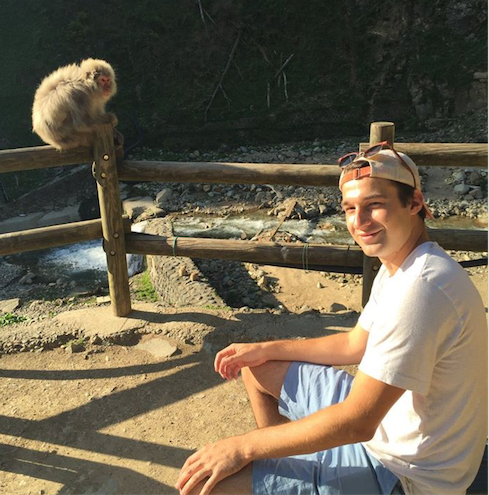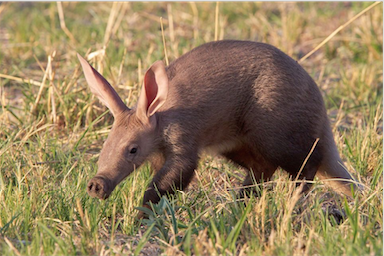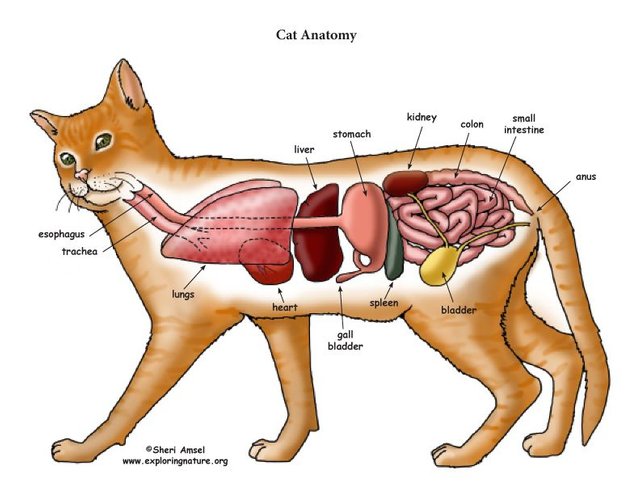Our deep-seated connection to nature: something I believe we should devote more time to and teach our children

Harkening back to the elementary school I attended in Washington D.C., I recall the kind of work teachers would encourage us to do with regards to nature. We had little projects devoted to animals, we were put through our paces about the water cycle, and were taught about rainforests, deserts, ecosystems, and how to recycle and to care for others (for example by using UNICEF boxes while trick-or-treating). We grew little string bean plants, witnessed how the spores on a mushroom cap stained a sheet of paper, and we dissected flowers and even brains.
As kids, many of us we were exposed to cartoons, the holy grail of animals personified: Bugs Bunny, Porky pig, Garfield the cat, Scooby Doo, Arthur the Aardvark, Franklin the turtle, Little Bear, countless more. One might think being showered with countless lovable animated figures in animal-form from a young age would quell are appetites, say, for eating the REAL piglet for breakfast with three of mother gooses unborn eggs. But I'm not convinced. I think kids are smart enough to notice that these animal-characters are being humanized to the point that they really don't bare any resemblance to real-life. They learn nothing about the the Aardvark by watching Arthur accidentally go to school without his pants on, rather they learn how to deal with human embarrassment.
I didn't even know what the hell an aardvark looked like until just now! (And look! He seems perfectly comfortable pants-less)

What I don't remember being taught in school was to inspect what connects us, human beings, to nature at large. This is an important piece of the picture that I believe was missing from elementary education.
A major reason we all internally suffer when we see that other humans are suffering, is simply because we have the ability to relate. We have all felt some level of pain in our lives, which has taught us to empathize, at least to a degree, with others who suffer even more. For example, we can do our best to imagine what it feels like to be a family in a war-torn nation like Syria, or one afflicted by lead-poisoning in Detroit, and it's instinctual for us to have a visceral, painful reaction to these injustices.
But what about injustices toward animals? Most of us have probably seen animal-charities devoting air time to video of sad-looking, disowned cats and dogs. Because we have built in our society a strong emotional link between humans and certain animals, we know that cats and dogs do indeed have unique, lovable personalities and dispositions toward humans. We are able to extrapolate the kind of love we feel for each other to detect something similar from animals.
In my view, more needs to be thought about and elaborated on concerning our multitude of connections with other organisms. Besides detecting that they have emotions like us, we should focus on other similarities as well. Let's take cats and dogs. They have all the same senses (vision, hearing, taste, smell, touch) as us. 4 of the 5 senses are exclusive to the head (not to mention they have heads), they have 4 limbs, similar gastrointestinal tracts, they shit out of a hole in their bottom (and, like us, they have special places where they prefer to do this). How about their bones? Of course, made of the same stuff. Is their blood red? Yes. Have Lungs? Yes. Is their body temperature warm? Yes. Are all of their organs similar to ours? YES! They even have friggin' spleens! 
Now how about we extend this to an animal that, as a society, we find pretty amusing, but we don't LOVE: The duck. From Daffy, to Scrooge, Donald and his kids, to the little rubber ducky (not to confuse with a Rubbered Yucky --I'll save that for another time) in your bath tub, we have made ducks into adorable fixtures in our society. Yet for an animal we seem to adore, we eat them kind of a lot (PETA estimates 31 million ducks are killed a year for flesh, which is still minuscule compared to the 8 billion chickens consumed each year by the US alone). Are we similar to ducks though, physiologically? You tell me.

I'm not arguing that we should stop eating other animals entirely, but that we should make an effort to show some moderation. It's uncanny the way many humans elevate themselves as a species to the point that it's commonplace for billions and billions of animals to be sacrificed annually to satisfy our pallets.
So why do we allow this to happen? One of the reasons is that, as the cleverest species on Earth, we can. That much is obvious, but should our intelligence and food preferences unite humans to agree on the domination and sometimes devastation of other species on the planet? We are obviously at the top of food chain. We have complete command over other species, have farming down to a science, and we are curious to try more and more different types of food. We get to whet our appetites and extend our pallets to enjoy everything from snails to octopi to sheep stomach. It's a fulfilling part life for many people to be able to try as many delicacies as possible, just ask Guy Fieri.
But should we be doing this simply because we can and it's sort of fun to taste everything? Though species devouring other species is a fact of nature, we may be the only creature that has the ability to make rational choices, and to do so while living very cushy lives. It would be one thing to be eating animals due to necessity (which I could not dispute), but to eat them because we can even if we have alternatives seems avaricious to me. Again, his doesn't mean I think everyone should quit eating meat. I would be a hypocrite if I said so as I eat meat fairly regularly.
I have a sense that most societies lack the necessary thought or care on this matter, which is why educating our children about the similarities between us and other organisms would improve us ethically. Ethics-based decisions require deep thought, and the earlier we are exposed to a line of thinking, the more we will maintain that thought as we move forward in life. A child, after being shown in class how she is similar to a bird , let's say, might realize in the cafeteria while being served her hump-day chicken nuggets: "Wait a minute, this chicken really isn't all that different from me. How come I get to eat this chicken?" It wouldn't necessarily change everyone's behavior, but it would at least implore people to think deeply about our place on Earth with respect to other organisms, and put many, in my opinion, on a path where they'd be more conscious of their choices in foods.
How far would these lessons go? I'm not sure. If humans aren't convinced that they should lay off meat entirely, what do we have to witness in a species to realize that we shouldn't be eating it, or at the very least that we shouldn't be mistreating it before we eat it? That they are capable of feeling love toward on another? Some base-level of intelligence? That they can suffer and feel happiness like us?
Might it be good for kids to witness cows experiencing something like joy?
Or chickens that have been trained to count?
Or piglets learning to use a mirrors to find their food?
Or parrots operating a sink to take a bath?
These kinds of videos (and hopefully live demonstrations too) and lessons about our biological similarities with organisms would help bridge the divide between us and the food that winds up in our grocery stores. It might be too harrowing to show kids examples of animals suffering pain like humans (i.e. by showing them the way many animals are inhumanely brought up and slaughtered), so to show the similarities in positive emotions and skills would be a good step, and might motivate future academic interests as well
These teachings might be disputed by parents who feel it's their role, not the role of our education system, to teach their kids about ethics. Those who adhere to religions that claim humans were put on Earth by a divine creator may not be too happy to know that their kids are being taught that humans are not all that different than animals --especially animals that are considered "dirty". But more and more, science is telling us that we all are deeply connected. Evolution shows us that over time a great span of hundreds of millions years, all earthly creatures evolved from similar ancestors Carl Sagan's evolution animation comes to mind. Comparisons in genomes show that humans share 98% of our genes with chimpanzees, 92% of them with mice, 95% with cats, 44% with fruit flies..
Again, I'm not vying for a war on farming animals, rather to simply devote more time to harping on our similarities to nature, whether physiological or based on emotions or skills. This will inspire more thought and empathy in future generations, and could lead to a decreased demand for the consumption of animals, which has gotten to a pretty insane level. I personally believe asking these questions will help people lead more fulfilling lives as they make decisions that they find agreeable with their sense of right and wrong.
I hope you enjoyed the read, and have a great week out there! I'd love to read your opinions or comments on our educational system, and the way we approach, consume, and represent animals in society
-STEEMMATE
Nice!